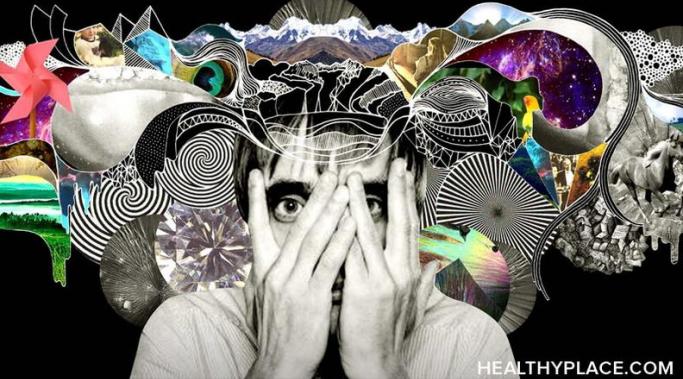I’m not a fan of New Year’s resolutions. I generally find them phony, unreasonable and dead by the second week of January. I feel if you’re ready for change in your life you make change at that moment, not when a ball drop tells you to.
That being said, people insist on making New Year’s resolutions anyway. It’s a psychological and societal time of renewal and a life reset that people choose to mark with promises. So if you’re bipolar, what kind of New Year’s resolutions might be helpful?
Impact of Bipolar
Congratulations; if you’re reading this you’ve survived the holidays, or most of them anyway. You’re past the late-night wrapping sessions, the overindulgence in eggnog and the stuffing that you never like but every year are forced into eating anyway. Huzah.
But if you’re a bipolar like me, you’ve found that all that forced merriment has left you feeling hollow, tired and depressed, so it’s time to take action to get back to your pre-holiday self.
I’m spending this Christmas back in the town where I grew up, sleeping in my mother’s guest room. I have to be there a week. A week with parents and siblings. A week of turkey and tiny oranges. A week of me silently begging to go home.
But I understand that holiday obligations are, well, obligatory, so I do have some methods for trying to survive it.
Epileptics often get what is known as an aura before they have a seizure. An aura is a sensation like hearing voices or seeing colored lights or experiencing numbness. An aura might be present a few seconds or a few minutes before the seizure depending on the person. It’s an early warning sign of a brain misfire. Similarly, I experience signs, an aura if you will, of upcoming hypomanias.
When we were children, for most of us, Christmas was magical. You got to tear into shiny wrapping paper and discover the most amazing and wondrous gifts inside. There was a Santa Claus who confirmed we had been good all year long. There was a Christmas tree reaching to the sky and cookies and candies abounded. Our four-year-old, six-year-old, eight-year-old minds didn’t see the faults, cracks, bills and squabbles. All we remember is the Barbies, remote-control cars and cookies for Santa.
And so it should be. Those memories, even if mostly embellishments of imagination, are great to hold onto.
The problem is, for some reason, we spend our entire adult lives trying to recreate the magic that never existed in the first place.
I have been through very long, dark nights of the psyche. I have been in pain I didn’t think I could survive. I’ve been in pain I almost didn’t survive. I have done things I never wanted to do. I have done things I never thought I would do. I have been to places most people wouldn’t even come up with in their nightmares.
And when I’m not there, I’m grateful. No matter how much I might think things suck, I’m not sitting in that particular pile of blood and muck. No matter how I feel today I can honestly say it can get worse. Every time I think I’ve hit bottom I’ve found there is actually more bottom beyond that. It is unfortunate but true, there is no maximum to pain.
And any time I even think about changing meds I’m worried I will go there again.
I have been through more bipolar treatments than I care to recall; probably everything you’ve heard of plus a bunch of bipolar treatments you haven’t. And yes, obviously, I have failed the vast majority of these bipolar treatments. And while not getting better is certainly nasty enough, it always feels like it’s my fault that the treatment didn’t work.
Earlier this month, I wrote about how to stay on psych medication. I gave tips and tricks to help you stay on track. In today's video, I show you my own twist on psych medication reminders.
Many of us with a mental illness have tried to “power through” it. We have tried to muscle through the pain without getting help of any kind. Most of us don’t want to admit we need help. Most of us don’t even want to admit we’re sick. We think that we’ll be fine without doctors and therapists and pills. We think that they are the enemy. We think we’re better off without them.
We are so ridiculously wrong.
I get all manner of comments here and many of them scrape against my bones. Because I know these people. Because I know their brains. Because I am these people.
Sometimes people think because I write or advocate or win awards I am not them, but it is precisely because I am them that I can do these things. It is precisely because I feel their desperation that I can truly write about it. One does write what they know, after all.


